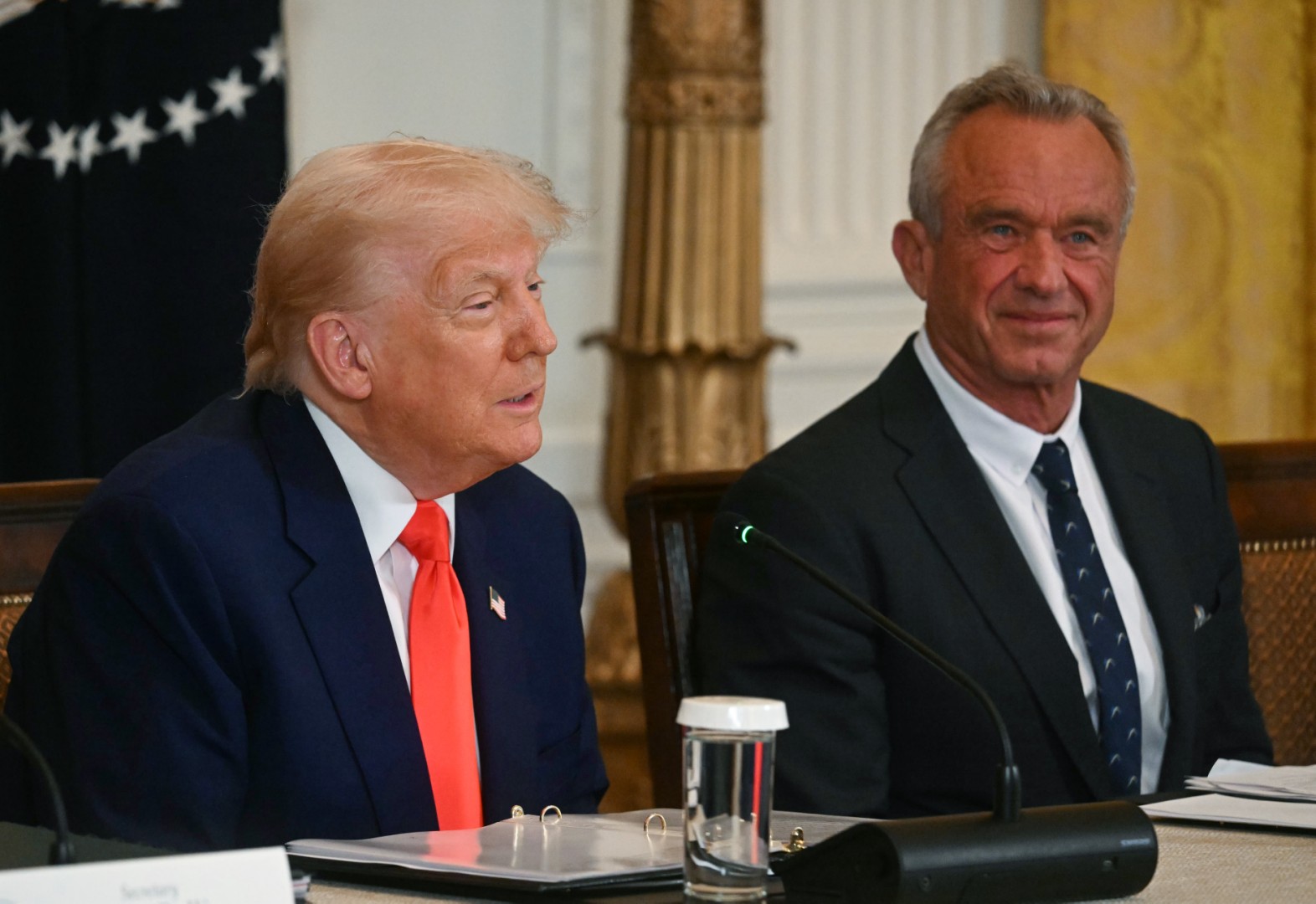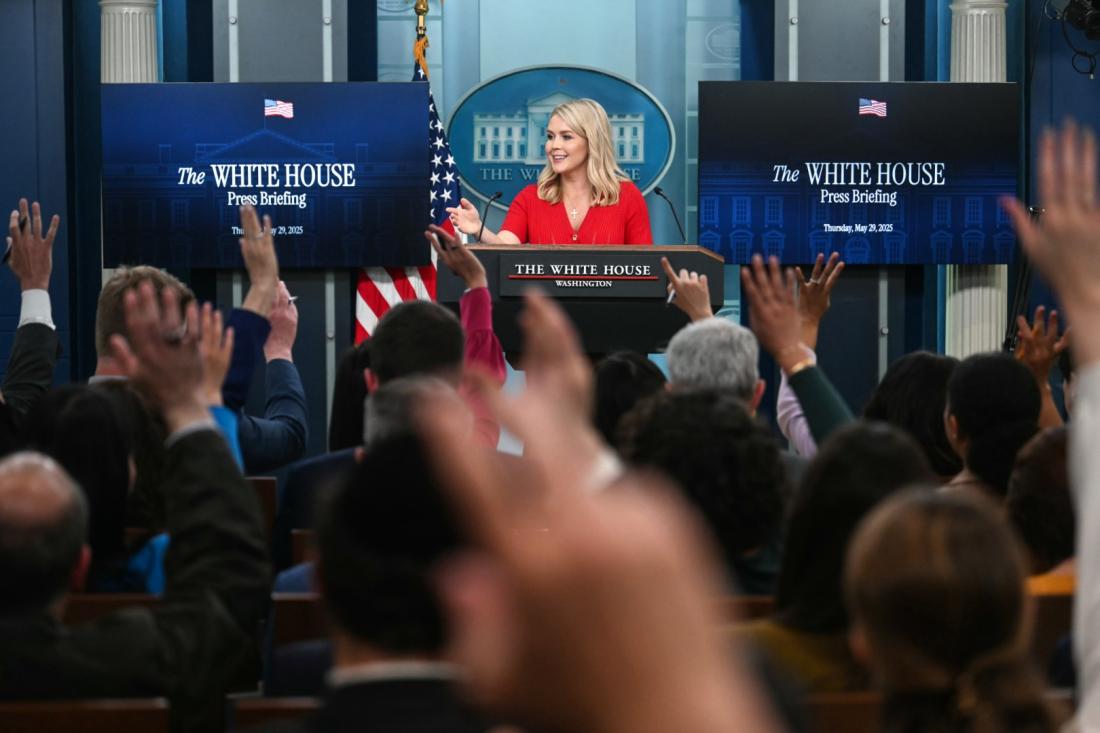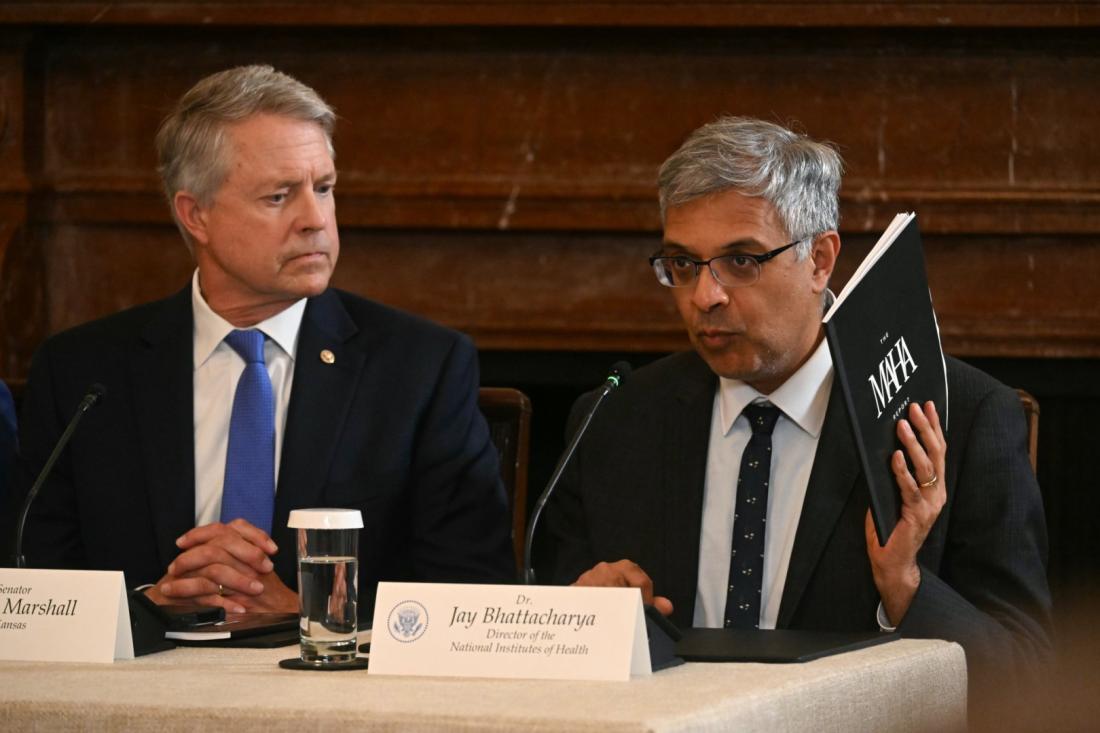
'Make America Healthy Again' report cites nonexistent studies: authors
- Published on May 30, 2025 at 20:47
- 5 min read
- By Marisha GOLDHAMER, Bill MCCARTHY, AFP USA
The highly anticipated "Make America Healthy Again" (MAHA) report was released on May 22 by the presidential commission tasked with assessing drivers of childhood chronic disease.
But it included broken citation links and credits authors with papers they say they did not write.
White House Press Secretary Karoline Leavitt downplayed the errors as "formatting issues" during a press briefing on May 29 (archived here).
"It does not negate the substance of the report," said Leavitt, who expressed confidence in Kennedy and his team, and insisted their work was "backed on good science."

The issues were first reported May 29 by NOTUS (archived here), a US digital news website affiliated with the nonprofit Allbritton Journalism Institute.
Noah Kreski (archived here), a Columbia University researcher listed as an author of a paper on adolescent anxiety and depression during the Covid-19 pandemic, told AFP the citation is "not one of our studies" and "doesn't appear to be a study that exists at all."
The citation included a link (archived here) that purported to send users to an article in the peer-reviewed medical journal JAMA Pediatrics, but it was broken.
Jim Michalski, a spokesman for the JAMA Network (archived here), said it "was not published in JAMA Pediatrics or in any JAMA Network journal."
Columbia University epidemiologist Katherine Keyes (archived here), who was also listed as an author of the supposed JAMA study, told AFP she does research on the topic but does not know where the statistics credited to her came from, and that she "did not write that paper."
She expressed concern about the error saying: "Citation practices are an important part of conducting and reporting rigorous science."
She said she would be happy to send her actual research on depressive symptoms in adolescents and young adults "to the MAHA committee to correct the report, although I have not yet received information on where to reach them."
Guohua Li, another Columbia University professor named in the citation (archived here), said the reference is "totally fabricated" and that he does not even know Kreski.
AFP also spoke with Harold Farber, a pediatrics professor at Baylor College of Medicine (archived here), who said the paper attributed to him "does not exist" nor had he ever collaborated with the co-authors credited in the MAHA report.
Similarly, Brian McNeill, spokesperson for Virginia Commonwealth University, confirmed that professor Robert Findling (archived here) did not author a paper the report says he wrote about advertising of psychotropic medications for youth.
A fourth paper on ADHD medication was also not published in the journal Pediatrics in 2008 as claimed in the MAHA report, according to the journal's publisher, the American Academy of Pediatrics.
A keyword search reveals a blog post with the same title as the purported paper, "Direct-to-consumer advertising and the rise in ADHD medication use among children" but it has a different author and is not a peer-reviewed publication (archived here).
The Democratic National Committee blasted the report as "rife with misinformation" in a May 29 press release, saying Kennedy's agency "is justifying its policy priorities with studies and sources that do not exist" (archived here).
Citations edited
The Department of Health and Human Services (HHS) declined to comment, referring AFP's questions to the White House.
At her briefing, Leavitt declined to answer how the report was produced and whether artificial intelligence tools may have been used to craft it, directing those questions back to HHS.
The Washington Post reported its analysis of the citations showed "oaicite" was attached to the URLs, the presence of which indicates the use of artificial intelligence products from OpenAI (archived here).
Within hours of the briefing, an edited version of the report replaced the original paper on the White House website (archived here).
Changes are not flagged or marked as corrections, but the four citations investigated by AFP were replaced with working links.
The modifications are as follows:
- The paper said to come from the team at Columbia University was swapped out for a reference to a briefing on the Teen National Health Interview Survey published by KFF (archived here).
- The nonexistent paper credited to Farber was replaced with a paper on oral corticosteroid medication prescribed for asthma he published in Pediatrics in 2017 (archived here).
- An article published in the journal Psychiatric Services in 2006 replaced the paper initially credited to Findling (archived here).
- The reference to a paper on ADHD medication advertising was supplanted by a 2013 article from The New York Times (archived here)
Concerns about Kennedy
The revelations about the MAHA study came just a day after Kennedy attacked major medical journals, accusing them of collaborating with the pharmaceutical industry and threatening to bar government scientists from publishing in them.
Kennedy was approved as health secretary earlier this year despite widespread alarm from the medical community over his history of promoting vaccine misinformation and denying scientific facts.
Since taking office, he has ordered the National Institutes of Health to probe the causes of autism -- a condition he has long falsely tied to the measles, mumps, and rubella (MMR) vaccine.
The report's chronic disease references appear to nod to that same disproven theory, discredited by numerous studies since the idea first aired in a late 1990s paper based on falsified data.
It also criticizes the "over-medicalization" of children, citing surging prescriptions of psychiatric drugs and antibiotics, and blaming "corporate capture" for skewing scientific research.

Read more of AFP's reporting on health misinformation here.
Gwen Roley and Manon Jacob contributed reporting to this article.
Copyright © AFP 2017-2026. Any commercial use of this content requires a subscription. Click here to find out more.
Is there content that you would like AFP to fact-check? Get in touch.
Contact us
